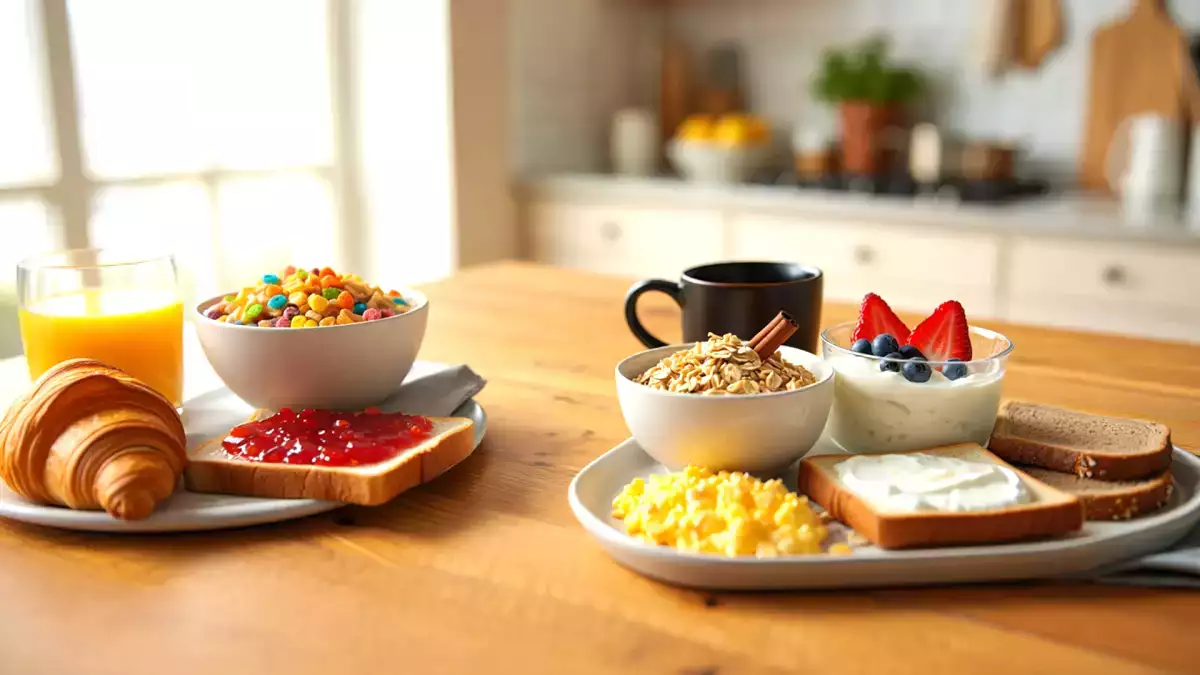If you eat these things as soon as you wake up, you might mess up your blood sugar!

There is a mistake that a great many people make every morning as soon as they wake up. A seemingly harmless act, but one that can send blood sugar into a tailspin from the very first bite.
And when blood sugar gets out of balance, mood, concentration and energy also suffer for the rest of the day. Let's find out together why this happens and how to correct this habit without giving up the pleasure of breakfast.
Why is breakfast so important for blood sugar?
After a night of fasting, the body wakes up hungry for energy. This is a delicate moment: the body is ready to absorb everything you offer it.
However, if the first thing you eat contains simple sugars or refined flours, your blood sugar spikes. The pancreas reacts by producing a surge of insulin to lower it, and before long blood sugar levels plummet.
The result? A real "roller coaster" effect: a spike in energy followed by fatigue, hunger, and irritability. Thus, without realizing it, you start the day already feeling fatigued.
The signs of a bad breakfast
We often don't think about it, but the body sends clear signals when breakfast is not balanced. Here are the most common ones:
- You feel irritable or agitated for no reason
- You need a second cup of coffee or something sweet to "jumpstart" you
- You have drops in concentration or feel confused
- You feel hungry again after two hours even though you just had breakfast
- You get drowsy mid-morning
If you recognize yourself in these symptoms, your breakfast is probably not helping your blood sugar.
The most common mistakes in the morning
The "Italian-style" breakfast is delicious, but it is also often the most unbalanced from a glycemic standpoint. Here are the most common mistakes that make blood sugar rise and fall like a seesaw:
- Cornetto or brioche with cappuccino, a mix of sugars and fats that burn immediately
- Packaged cereals, often full of sugar even though they look "light"
- Cookies or snacks, convenient but loaded with refined flours
- Industrial fruit juices, which concentrate sugars without fiber
- White bread and jam, even if homemade, remains a high-glycemic-impact combination
How to make breakfast a blood sugar ally
Correcting mistakes is not difficult. It only takes small changes to stabilize sugar levels and feel better throughout the day.
Here are some simple strategies:
- Add protein such as eggs, Greek yogurt or cottage cheese
- Choose whole-grain carbohydrates such as rye bread or oats
- Include good fats such as nuts, seeds or avocados
- Add fiber with whole fruits, not juices
- Avoid added sugars and sweetened drinks
A perfect example is a bowl of Greek yogurt with oats, blueberries and nuts: tasty, balanced and blood sugar friendly.
Why is it a problem if you keep getting breakfast wrong
Eating an overly sweet or refined breakfast every morning can, over time, alter insulin sensitivity. The body becomes accustomed to producing high amounts of it and becomes less efficient at handling sugar.
This can cause nervous hunger, energy fluctuations and, in the long run, even metabolic problems such as prediabetes.
In addition, an unstable blood sugar in the morning also affects mood. When blood sugar drops suddenly, the brain reacts with stress and irritability. That's why you often feel "down" or nervous mid-morning: it all starts with what you ate when you just woke up.
Conclusion
Breakfast should be an ally, not a hindrance to your balance. Eating the wrong food as soon as you wake up can alter blood sugar, reduce energy, and affect mental well-being throughout the day. Choosing a more balanced breakfast does not mean giving up taste, but becoming more mindful. It only takes a little to feel clearer, more stable and fitter.
Because yes, what you eat as soon as you open your eyes can really change your day and your health.
 Daniele Mainieri
Daniele Mainieri
Comments
eric
Learned a lot for people like health consius, thanks a lot!